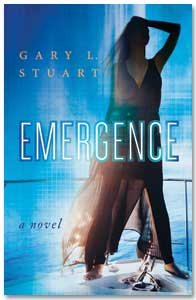An aspersion is an attack on another person’s reputation or integrity. In a religious context, is the act of sprinkling with water, especially holy water. The former is a sin, the latter an alternative to immersion in a pool or a river while baptizing the person.
“Aspersion” comes from the Latin word aspersus, itself a derivative of the verb “aspergere,” which means “to sprinkle” or “to scatter.” Without casting aspersions here, this blog is about the quaint practice implying misdeeds, misconduct, or bad habits without the risk of direct accusation by merely scattering them rather than making an out-and-out accusation.
When used as a verb, “cast” means to throw, hurl, or fling. When used with an object, like aspersions, it means trouble coming at you askance, from a distance, safely behind the curtain of maybe-I-meant-it and maybe-not.
President Trump has upgraded the practice to an art form. He alleged that the World Health Organization shielded China’s culpability in the spread of COVID-19. The WHO retorted that Trump’s disregard and distrust of multilateral institutions cast aspersions in the worst-ever public health crisis.[1] He casts aspersions on critics or would-be critics by claiming that he has compromising stories he could tell.[2] CNN’s Jake Tapper cast aspersions by commenting on Trump’s aspersions. “Should Trump really be casting aspersions on the marriages of anyone else?”[3]
One widely covered aspersion was cast in May 2014 when Rep. Louie Gohmert (R. Texas) got into an intense argument with Attorney General Eric Holder about whether the US government could have done more to prevent the Boston Marathon bombings. The exchange ended with Congressman Gohmert declaring, “The attorney general will not cast aspersions on my asparagus!” Later, AG Holder got back by saying to the congressman, “Good luck with your asparagus.”[4]
Aspersions, comments about character and slights of all kind are just shy of defamation. There is an existing ethical framework for defamation and by extension some guidance for the lesser sin of casting aspersions. Aspersions are words, and words are building blocks. Words can bridge the divide between the abstraction of language and casting aspersions. Ethical writing embodies basic moral principles. But aspersions are less tangible and nearly impossible to define. Good and bad is never an ethical test. My ethical writing might be your pulp fiction. The easy tests of ethical writing—fairness, accuracy, and honesty—are guidelines rather than obligations, when it comes to aspersions.
Casting stones and casting aspersions should be measured by the same ethical ruler. If done to hurt another person, don’t cast either.

I am an author and a part-time lawyer with a focus on ethics and professional discipline. I teach creative writing and ethics to law students at Arizona State University. Read my bio.
If you have an important story you want told, you can commission me to write it for you. Learn how.
[1] https://economictimes.indiatimes.com/blogs/et-editorials/an-unhealthy-call-by-president-trump/
[2] https://archive.thinkprogress.org/donald-trump-smears-gary-cohn-tactic-could-tell-stories-3999266aa886/
[3] https://www.vox.com/policy-and-politics/2016/10/3/13149254/jake-tapper-trump-clinton-marriage
[4] https://www.glennbeck.com/2014/04/09/louie-gohmert-explains-why-his-infamous-asparagus-comment-was-actually-not-a-mistake/






 I am an author and a part-time lawyer with a focus on ethics and professional discipline. I teach creative writing and ethics to law students at Arizona State University.
I am an author and a part-time lawyer with a focus on ethics and professional discipline. I teach creative writing and ethics to law students at Arizona State University.  My latest novel is Emergence, the sequel to Let’s Disappear.
My latest novel is Emergence, the sequel to Let’s Disappear.  If you have an important story you want told, you can commission me to write it for you.
If you have an important story you want told, you can commission me to write it for you.